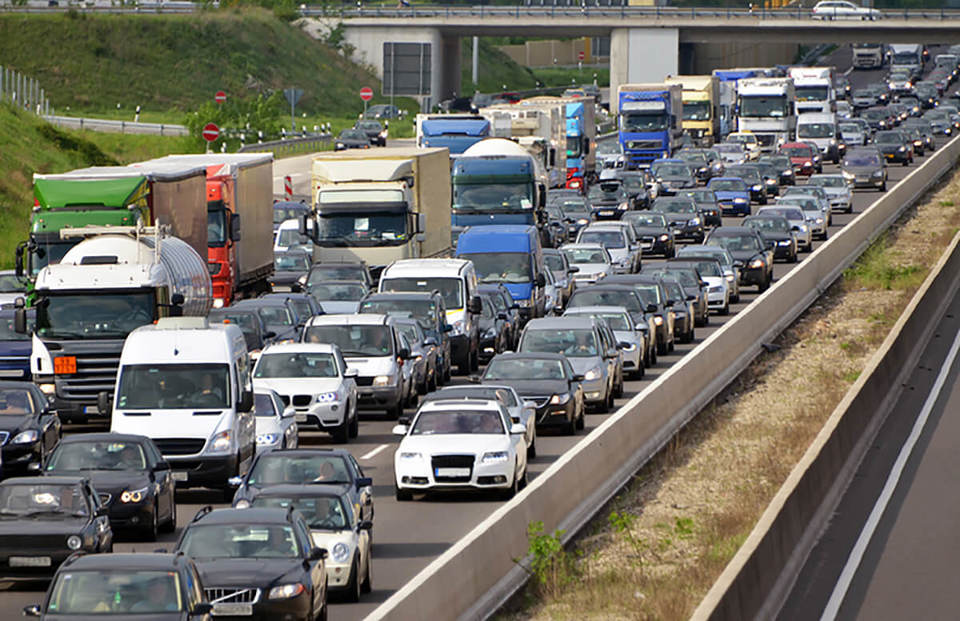The Freight Transport Association (FTA) and Road Haulage Association (RHA) say the supply chain is capable of handling challenges posed by the COVID-19 pandemic.
However, both say Government help is crucial to maintaining the flow of goods and criticised panic buying for putting undue pressure on transport systems.
Supermarket shelves have been emptied and home delivery services have run out of delivery slots due to excessive demand caused by the Coronavirus outbreak.
Ocado closed its website until Saturday (March 21) due to high volumes of traffic, while Sainsburys, Asda, Morrisons and Tesco sold out of delivery slots in many locations, with some customers unable to place an order within the next three weeks.
Read more here about the pressures faced by home delivery fleets here.
Elizabeth de Jong, the FTA’s policy director, explained: “Logistics is one of the UK’s most flexible and adaptable industries and is used to reacting to extreme disruption caused by environmental factors, fuel shortages and employment strikes.
“Our members are working closely with customers to keep things moving and the message is clear – there is plenty of everything the country needs to continue working and living, providing people do not panic buy.”
Logistics operates a very lean business model, with deliveries made ‘just in time’ to keep prices as low as possible, but empty shelves does not mean that stock is not on its way, says de Jong.
“There are particular challenges posed by the potential of illness and self-isolation of workers within the supply chain, but our members are keen to reassure their customers that they will make every effort to ensure any disruption is minimised.
“Logistics is responsible for every item used in this country, from the food we eat to the manufacturing components industry relies upon and, as such, should be recognised as a critical emergency service and its workers given the same recognition as those working for the emergency services or in healthcare.”
Logistics also needs Government support for contingency plans to address driver shortages caused by sickness, says de Jong.
“It is clear that we are facing unprecedented times, and additional financial support may be required for many businesses, particularly those that supply the tourism or hospitality sectors, in the very near future if the logistics sector is to survive.”
The overriding message from the logistics industry, according to de Jong, is to try to maintain normal practices as much as possible.
“Logistics can cope with the challenges of the pandemic, providing everyone maintains a balanced and sensible response to the situation,” she said.
“Our members are well prepared to keep goods and materials flowing to all areas of the UK’s economy, providing a pragmatic approach is maintained.”
DRIVERS’ HOURS RELAXED FURTHER
The Department for Transport (DfT) first said it was relaxing drivers’ hours regulations for certain operations, last week, before announcing further changes this weekend.
DfT had agreed to a 'temporary and limited' urgent relaxation of the enforcement of EU drivers’ hours rules in England, Scotland and Wales for the drivers of vehicles involved in the delivery of food, non-food (personal care and household paper and cleaning) and over the counter pharmaceuticals.
However, the DfT has now decided to relax the rules further, applying them to all haulage operations from 12.01am today (Monday, March 23) to 11.59pm on Tuesday, April 21.
RHA chief executive Richard Burnett said: “This is a blanket relaxation covering all sectors and recognises how integrated and inter-dependent supply chains are across the whole economy. The sector is working as efficiently and as quickly possible.
“This relaxation improves resilience in a way that ensure all goods can reach the area where they are needed.
“Shortages are not the problem at the moment – the problem lies with supplying the current excess demand for goods caused by panic buying. This just creates bottlenecks that undermine efficient delivery schedules.
“The relaxation in hours will not reduce the levels of enforcement of the drivers’ hours. It is vital that companies only use these relaxed rules when needed and companies must monitor drivers to ensure they do not drive tired or in any way unfit.
“The need for compliance with the rules is absolute. This relaxation must be used wisely, not abused recklessly.”























Login to comment
Comments
No comments have been made yet.